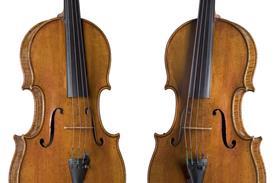Research from Help Musicians shows the significance of music on the British public, during a time when the cost of living crisis, the pandemic and Brexit threaten the future of music making

Read more news articles here
Seven in ten people in the UK (67 per cent) ‘could not live without music’, with almost half (45 per cent) believing it is ‘part of their DNA’, according to research from charity Help Musicians.
This data follows on from a survey released by the charity last month which showed that close to half of professional musicians think they will be forced to leave the industry, due to the ‘brutal’ impact of the cost of living crisis, alongside the ongoing impact of the pandemic and Brexit.
At a time when music is more important to Brits than ever, six in ten professional musicians (60 per cent) say they are worse off financially now compared to the same time last year. Nine out of ten (90 per cent) are worried about affording food over the next six months, with 84 per cent concerned about paying their mortgage or rent.
’Music has a power that we must not underestimate,’ said James Ainscough, chief executive of Help Musicians. Commenting on the new findings, he continued, ’It is a force that brings people together and is intertwined to their very identity. In recent years we have all become even more conscious of how music calms our souls, lifts our spirits, and binds together communities. How ironic then that musicians themselves are facing the most brutal conditions seen for decades.
’Musicians need a broad range of support to help them navigate the financial, career-building and mental health challenges they currently face,’ said Ainscough. ’As a charity, we will continue to put significant time and resources into sustaining musicians over the coming, challenging months. The entire country will be poorer if we lose talented musicians from the profession. We want to continue enjoying their music in a thriving music ecosystem.’
The new research shows the significant impact this music has on many people in the UK. Music is especially important to younger generations - 83 per cent of young adults aged 18-24 say they could not live without music with nine in ten (89 per cent) saying it is an ‘important part’ of their lives. In total, 67 per cent of the population listen to music on a daily basis.
Read: Music teacher recruitment numbers in peril, according to new research
Read: Tartini tones: new research shows differences in old and new instruments
Read: New research finds we respond intellectually to classical music and physically to pop music
The study further reveals how deeply rooted music is in how people see themselves and others, with 65 per cent believing music is a big part of ‘who they are’.
While people primarily listen to music simply for ‘enjoyment’ (80 per cent), it also plays a key role in welfare, with over six in ten citing benefits in terms of relaxation (63 per cent), health and wellbeing (34 per cent), and energy and motivation (29 per cent).
Younger people (18-24 year olds) in particular have a strong connection with music, with 8 in 10 (80 per cent) listening to it daily. 71 per cent of 18-24 year olds said music gives them a sense of belonging, suggesting that music builds inclusion, acceptance and a way to define themselves during challenging life periods.
Over half of respondents (52 per cent) claim music can help them feel connected to others, whether that’s friends or families, or even strangers.
The research also emphasises how music can bring together people from different groups and communities, with over half of respondents (53 per cent) saying music can help them understand other cultures and three quarters (74 per cent) believe that music can help break down barriers. This shows how music can play a valuable role in a multicultural, diverse Britain.
The most popular genre among UK listeners is pop at 75 per cent, with classical at sixth place with 26 per cent.
Ther research was conducted by Help Musicians among a nationally representative sample of 2,000 UK adults in August 2022.
Read: Analysis January 2023: Why are the classical charts snubbing string players?
Read: ‘It’s a huge juggle’: new research highlights financial deficit among classical musician parents
Read: A third of musicians are considering abandoning the music industry new research reveals
Read more news articles here



































No comments yet